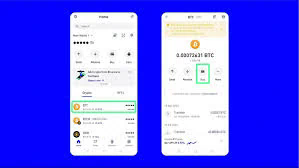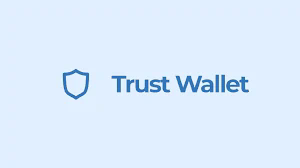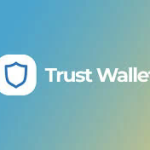An In-Depth Exploration of Digital Wallets: The Future of Financial Transactions
### Introduction to Digital Wallets
In today’s rapidly evolving digital landscape, the concept of a wallet has transcended its traditional physical form. Digital wallets, often referred to as e-wallets, are a staple of modern financial transactions. A digital wallet is a software-based system that securely stores users’ payment information and passwords for numerous payment methods and websites. As consumers increasingly adopt this technology, it is crucial to delve deep into the functionality, advantages, security considerations, and the future of digital wallets.
### What is a Digital Wallet?
A digital wallet functions as a virtual equivalent of a traditional wallet. It allows users to make electronic transactions quickly and easily. Typically, digital wallets store various payment methods, including credit and debit card information, bank account details, cryptocurrency wallets, and loyalty cards. Some popular digital wallets include PayPal, Apple Pay, Google Wallet, and Samsung Pay.
#### Types of Digital Wallets
Digital wallets can be categorized into two main types: hot wallets and cold wallets.
1. **Hot Wallets**: These wallets are connected to the internet and are ideal for transactions requiring immediate access to funds. However, their constant online presence makes them more susceptible to cyber threats.

2. **Cold Wallets**: In contrast, cold wallets are offline storage solutions ideal for securely storing digital assets over the long term. While they are less convenient for everyday transactions, they provide better security against hacks.
### The Rise of Digital Wallets in Modern Commerce
#### Historical Context
The evolution of digital wallets began in the late 20th century with the rise of the internet and e-commerce. The early forms included electronic cash and stored-value cards. However, it wasn’t until the proliferation of smartphones and advancements in payment technologies that digital wallets gained widespread adoption.
#### Adoption Rates
As of 2023, statistics indicate that billions of users globally engage with digital wallets regularly. According to industry reports, the global digital wallet market is expected to surpass $7 trillion by the mid-2020s, reflecting a growing acceptance of cashless transactions in personal and business spheres.
### Advantages of Using Digital Wallets
Digital wallets come with a multitude of advantages, enhancing both consumer experience and business efficiency:
1. **Convenience**: Users can complete transactions quickly, eliminating the need for physical cash or cards. With just a touch or a click, payments can be made anywhere, anytime.
2. **Speed of Transactions**: Digital wallets facilitate rapid transactions, often allowing for near-instant payments, which is advantageous for both consumers and businesses.
3. **Enhanced Security**: While concerns concerning cybersecurity exist, many digital wallets employ advanced encryption techniques and multi-factor authentication, reducing the risk of fraud.
4. **Access to Rewards and Loyalty Programs**: Many digital wallets offer integrated loyalty programs and rewards, providing users with added benefits for frequent transactions.
5. **Budget Management**: Some wallets come with budgeting features, helping users track their spending habits and manage their finances more effectively.
### Security Considerations in Digital Wallets
While digital wallets offer numerous benefits, security remains a paramount concern. Understanding the security measures and potential vulnerabilities is essential for users.
#### Encryption and Authentication
Most reputable digital wallets implement high-level encryption protocols to protect users’ financial information. Multi-factor authentication, which requires multiple forms of verification, adds an extra layer of security. For instance, users may need to enter a password and confirm their identity via a text message or biometric identification.
#### Risks and Challenges

Despite robust security measures, digital wallets are not entirely immune to risks. Common vulnerabilities include:
1. **Phishing Attacks**: Cybercriminals may attempt to trick users into revealing personal information through deceptive emails or websites.
2. **Malware**: Malicious software can compromise the security of mobile devices, putting digital wallet information at risk.
3. **Data Breaches**: Companies managing digital wallets can be targets for data breaches, exposing sensitive user data.
### Future of Digital Wallets
As we move further into the digital age, the role of digital wallets in our financial systems is likely to expand. Several trends and innovations are shaping the future:
1. **Integration with Digital Currencies**: The rise of cryptocurrencies offers a new dimension to digital wallets. Many providers are beginning to integrate cryptocurrency capabilities alongside traditional fiat currencies.
2. **Expansion into Emerging Markets**: Fintech companies are aggressively targeting developing countries where banking infrastructures are limited. Digital wallets can fill this gap, providing financial services to unbanked populations.
3. **Artificial Intelligence and Machine Learning**: AI and machine learning technologies can enhance fraud detection systems, personalizing user experiences, and optimizing transaction processes.
4. **Regulatory Changes**: As digital wallets become more popular, governments are likely to implement new regulations to ensure consumer protection and fair practices within the industry.
5. **Contactless Payments and NFC Technology**: Near Field Communication (NFC) technology will continue to drive contactless payments, making transactions even more efficient and hassle-free.
### Conclusion
The evolution of digital wallets reflects broader changes in technology, consumer behavior, and the global economy. As a versatile tool for managing financial transactions, digital wallets offer convenience, security, and efficiency. However, users must remain vigilant, employing best practices to protect themselves from potential risks.
Looking forward, the future of digital wallets appears promising, with ongoing innovations poised to enhance user experience and meet the evolving needs of consumers. As technology continues to advance, digital wallets are likely to play an even more integral role in the financial ecosystem, shaping how we conduct transactions, manage our finances, and interact with money in an increasingly digital world.


